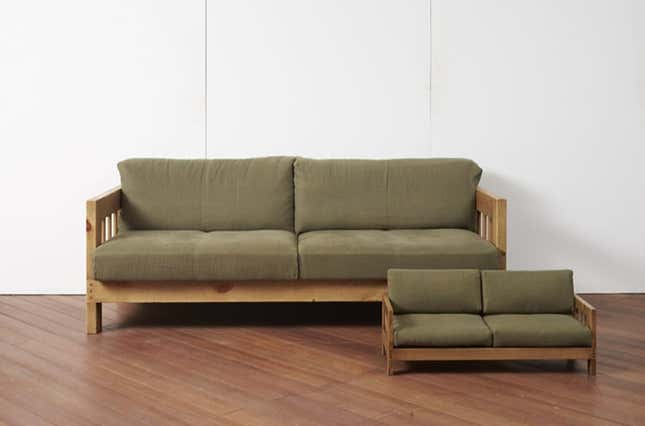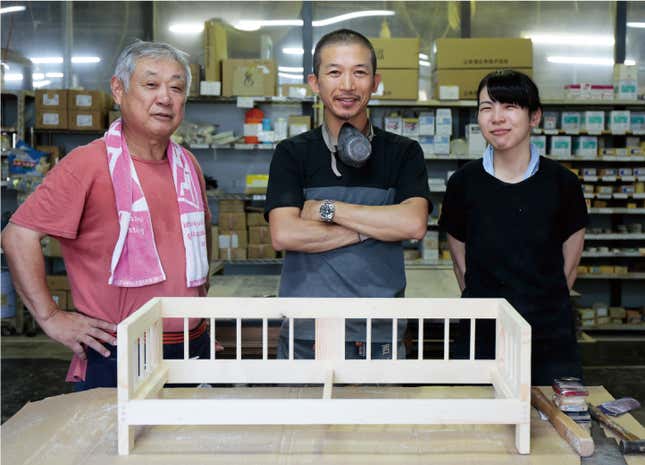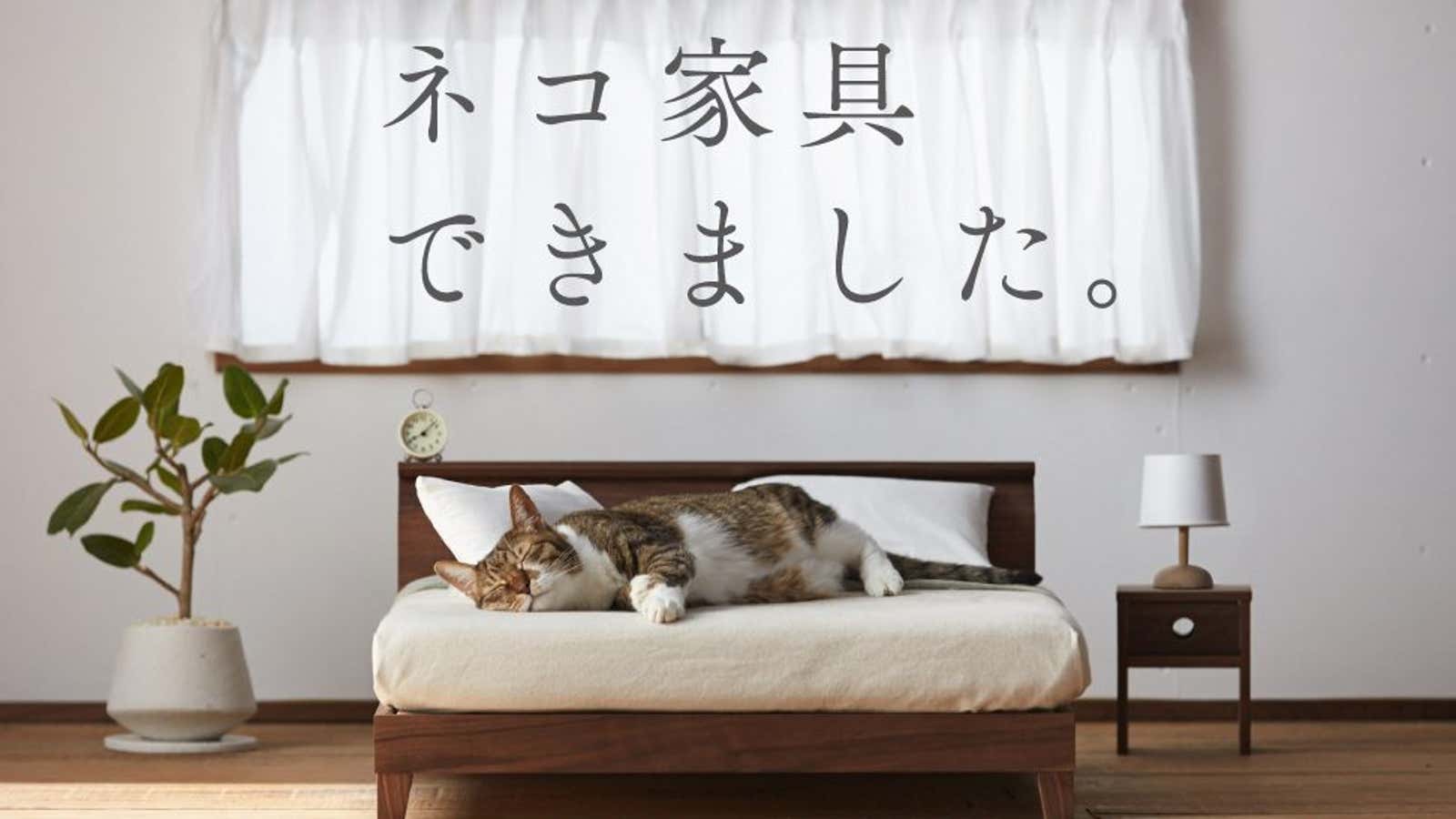Cat lovers, it’s time to shed the tacky kitty scratch posts and dank, carpet-lined loungers.
Japan’s national devotion to felines has resulted in a new line of stylish furniture designed to please the “capricious and free-spirited” house pets and their design-conscious owners.

Conceived to draw attention to Fukuoka prefecture’s wood craft industry, the cat furniture collection comprises of high-quality miniatures of full scale furniture. So far, two manufacturers have participated in the program: Hiromatsu Wood Work made a cat-sized replica of their Santa Fe sofa and Tateno Wood Art produced a low bed frame after their Raffine model. (The tiny end tables and shelves on the publicity photos are props, though one can conceivably commission Fukuoka’s master carpenters to make them.)

“It was good that the furniture produced by our company was miniaturized as it was and faithfully reproduced,” said Hiromatsu’s 88-year old designer Yu Watanabe in a blog post. “I was also making furniture for children, I thought that for cats is also interesting,” says Watanabe. To reproduce the faux distressed texture of the original, Hiromatsu’s craftsmen even added scratches to the pine wood frame before any kitties can rake their claws on them.
The pieces can be ordered directly from the workshops.
Cats have crawled their way into every aspect of Japanese life for centuries. The “hand-fed tigers” were first brought to mainland Japan from India by the Chinese around 500 A.D. to protect Buddhist scrolls from mice. Today they appear in ukiyo-e woodblock prints, centuries-old shrines and pop culture icons such as Hello Kitty, Doraemon and the ubiquitous “beckoning cat” good luck charm called maneki-neko.
Though the cat furniture line is primarily an ad campaign for Fukuoka’s wood artisans, making tasteful, handcrafted pet furniture could prove to be a viable revenue source for the beleaguered Japanese craft. The global pet accessories market is a billion dollar industry and the American Home Furnishings Alliance says that pet furniture, in particular, is booming. A 2015 study by the Pet Industry Joint Advisory Council suggests that most millennial customers today have no qualms about spending for fancy pet beds because they see their domestic animals as family members.
